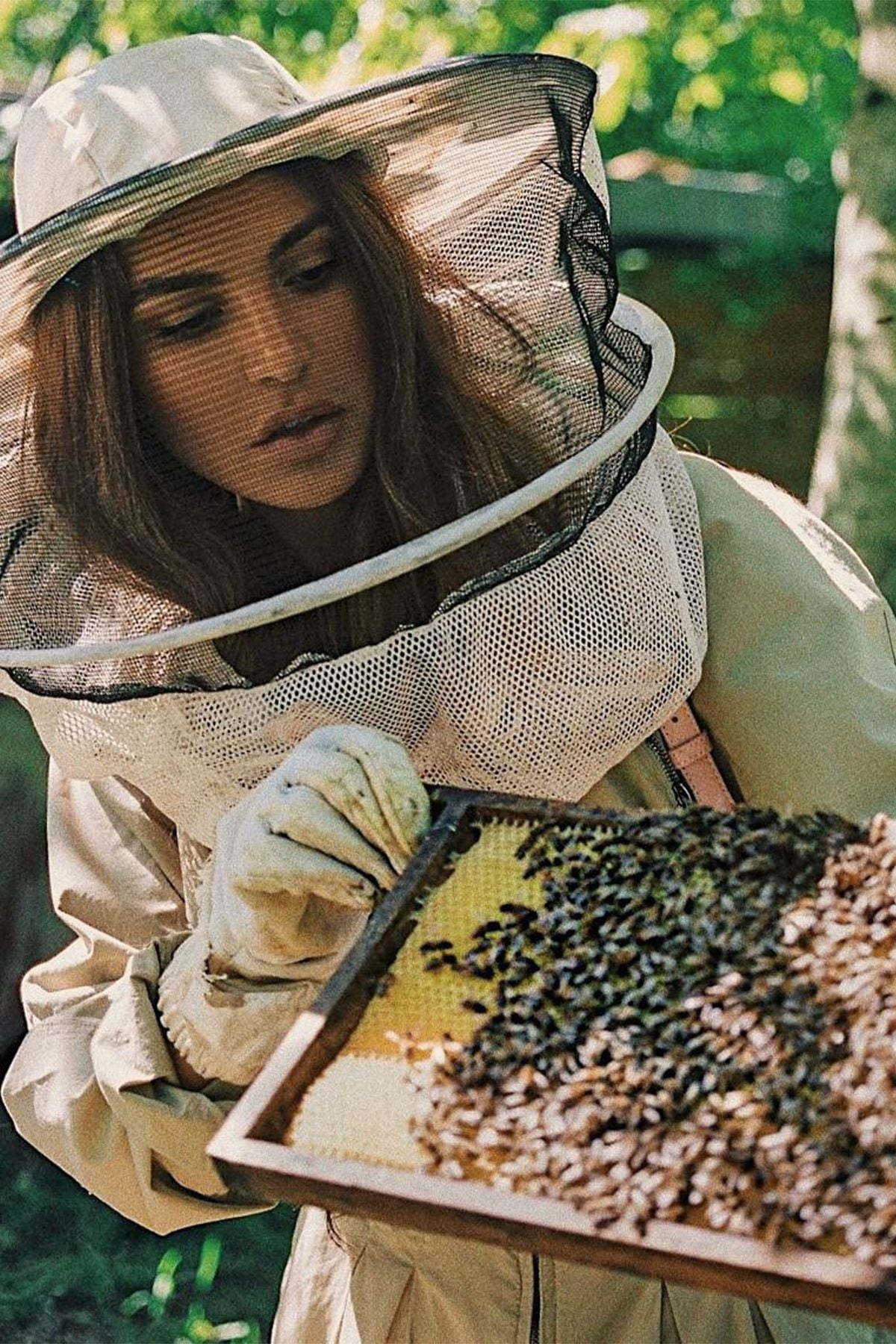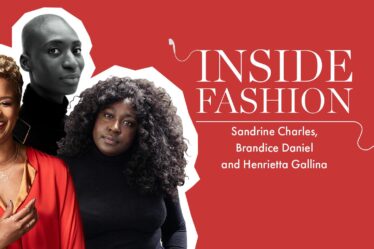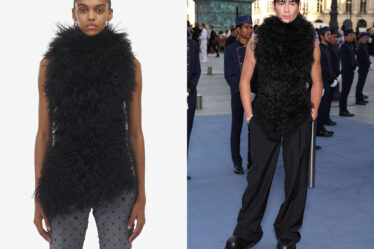
Welcome back to Haul of Fame, the weekly beauty roundup of new products, new ideas and a very good excuse to stay in on a Saturday night.
Included in today’s issue: Buxom, Caudalie, Dedcool, Graydon, Glo Skin, Kosas, Lisa Eldridge, Morphe, PMD Beauty, Snow Fox, Sol de Janerio, and Tegan and Sara.
But first,
Do you ever lie on a survey? I’m not just asking because I have a jury duty summons on my desk (although, yikes). It’s more because the gap between what shoppers say they want and what they’re actually buying feels wider than ever. It’s not just about “sustainable” desires versus fast fashion purchases (although again, yikes). It’s about vegan formulas, and how some of the most successful products right now are decidedly not.
Witness Gisou, the lip category upstart whose origin story is based on bees. Gisou uses honey sourced from influencer Negin Mirsalehi and her family’s apiary. They reportedly reached sales in excess of $100 million, and completed a Series B funding round with the “brand junkies” at Vaultier7 (Vestiaire Collective, Little Spoon) in 2022. More immediate? Teen girls love them, with their lustrous lip oils becoming a prime adolescent acquisition at Sephora, and frequently selling out. (“My daughters like to collect them,” a publicist for a rival brand said ruefully last month. “It’s like 9th grade Pokemon.”)
Honey can indeed be sourced responsibly, according to scientists and farmers. Still, it’s definitely not vegan. Some honey-based products, like those from Burt’s Bees, carry a Leaping Bunny certification for cruelty-free ingredients. But animal liberation groups like Peta won’t f*** with it. And though 86 percent of consumers “would like to start buying more vegan products,” according to a large consumer study funded by Swiss agency V-Label, that doesn’t seem to include must-have lip glosses.
Another example: Lanolips, the Aussie brand that uses lanolin, an animal fat harvested from wool, for their balms and scrubs. Lanolips says it’s “animal cruelty-free” and “humanely sourced from Australian sheep farmers.” The product itself is truly fantastic, but again, so not vegan — and for those who view any wool farming as unethical, it’s verboten. Still, Lanolips continues to sell out at Ulta Beauty and Anthropologie. It launched a new strawberry lip scrub on May 23. Lanolin is also in Bag Balm, the old-school farmer’s moisturiser that is now an inevitable TikTok trend.
Perhaps the most extreme version of animal-derived beauty products are beef tallow soaps, which some tattoo artists recommend to better preserve new ink. (Those with eczema and extreme dryness also often swear by it.) Fatco, a small brand of personal care products based on a rural California farm, even uses beef tallow in their deodorants to help with razor burn and dryness. The tallow is sourced from cattle farms, and is a byproduct of the meat industry.
There’s also Marin Skincare, a tiny startup in Maine that found the proteins in lobster shells can help repair a damaged skin barrier and seriously curb signs of distress like itching, flaking, redness and irritation from simple water contact. When Marin entered L.L. Bean for a trial run last spring, it sold 70 percent of its stock in just two weeks. Today it is also stocked at Cambridge Naturals, the Boston general store that my Harvard friends call “the Erewhon of the North.”
To get their ingredients, Marin uses upcycled lobster shells from local fishermen in Maine. Tallow soap companies employ similar upcycling practices by pairing with local beef farms and family ranches. Sheep farmers maintain that wool shearing, which produces lanolin, is a symbiotic way to relieve animals of summer weight while helping humans keep warm in colder months. And some botanists argue that beekeeping itself helps maintain biodiversity by keeping the pollination cycle thrumming. Is that view correct? It depends on your viewpoint. Some beauty brands, like The Body Shop, posit the only ethical way to engage with animals is to leave them alone entirely. In the more circular view of sustainable beauty taken by these farm-adjacent brands, vegan ingredients could actually create more waste than the leftover material from working farms. In their view, plugging into existing cycles of agriculture is ultimately more sustainable within our current systems.
Then there’s the other, bigger issue at play here: In a perfect world, all products would be regenerative, ethical, affordable and pleasurable to use. In our current one, consumers must be secretly selfish and buy the things that work best for their bodies and budgets, while outwardly claiming to be conscientiously “good.” Buying a non-vegan product that bills itself as ethical can feel like a tiny bit of rebellion, a “well, actually” rebuke to the narrative that being kind to everyone and everything is mandatory, but allowing nuance and imperfection within ourselves is shameful.
And sometimes, we just want a lip gloss.
What Else Is New
Skincare
Dedcool’s Xtra Milk laundry detergent hit Sephora on May 22. It is deeply fascinating that Sephora now carries laundromat supplies, right? This won’t be the last time the retail giant takes another tiny step into home care, which is, after all, another tentacle of self care.
On May 22, Snow Fox Skincare launched their Cucumber Recovery Serum, which contains 92 percent hyaluronic acid. (Whole cucumbers, meanwhile, do have their own hyaluronic acid content, though the summer veggie is almost 96 percent water.)
Caudalie’s Vinosun Protect Daily Mineral Sunscreen SPF 50 stepped into the light (get it?) on May 23. Like other recent sunscreens, this one promises deep skin benefits, including the ability to “visibly reduce dark spots and even skin tone.”
‘Tis the season for sweat-clogged pores and Glo Skin is ready for it … and, they hope, for you. Their new acne-reducing line includes a Clarifying Gel Moisturiser, “Barrier Restoring” PM Moisturiser, Acne Spot Treatment, and Recovery Spot Cream. It hits shelves on May 31.
If your skin might need something stronger, PMD Beauty’s newest device, the SilkSteam Pro, is available starting June 1. It’s a handheld facial steamer that “hydrates, softens pores and boosts product absorption.” No word on whether it will also get the wrinkles out of my linen dress, but either way: It seems like a very satisfying addition to a home spa day.
Starting June 1 until the end of the month, Graydon Skincare will give $1 from every $54 bottle of their Face Glow serum to the Tegan and Sara Foundation for LGBTQ+ rights. The serum contains smithsonite, a zinc-heavy mineral used in skincare for cellular repair. The bottle has a cute rainbow flag on it now, too.
Cosmetics
On May 17, Hard Candy launched Moods Shadow Pigment Paint, a range of eight stay-put shades for under $4 each. I’ve been deeply impressed with this brand’s pigment payoff, and have spoken with several fashion influencers who secretly use it daily. They can’t mention it because “it’s so cheap,” even though it’s also so good. But does a drugstore brand like Hard Candy even care if the front row of Isabel Marant is using their stuff? I would say “no,” but it’s still fun to think about.
Lisa Eldridge introduced their Baume Embrace Melting Lip Colour on May 30. It comes in five buildable pigments, including a taupe called “Meet Cute,” which seems to be the shade name of the season: Orly nail polish, H&M blush, Col-Lab blush, Hard Candy lipstick, and a Laneige lip mask all have the same ID.
Yes, fine, everything is blush now. Morphe joins the cheek-y craze with Huephoric Rush 3-in-1, which comes out June 2 at Ulta. It’s a round compact of swirled, creamy product that combines the sheer colour of blush with the smoothing properties of a primer. It follows Kosas’ Blush Is Life, the “brightening blush” that hit Sephora on May 20 and already sold out of two colours.
And on June 1, Buxom unveils Plump Shot, a range of blush that counts collagen peptides in its ingredient list and claims it’s “clinically shown to visibly plump cheeks by +25 percent.” Using the same lip-plumping hype for cheeks is very smart, because most consumers already understand the concept thanks to years of Duwop Lip Venom, Maybelline Lifter Gloss, etc.
And Finally
Q1 reports are out, and out of all the beauty categories, fragrance grew the most — 13 percent — since 2023. My prediction: By 2025, sunscreen / fragrance hybrids will be the norm, led by Sol de Janeiro and Vacation, but adopted by luxury players, too.



